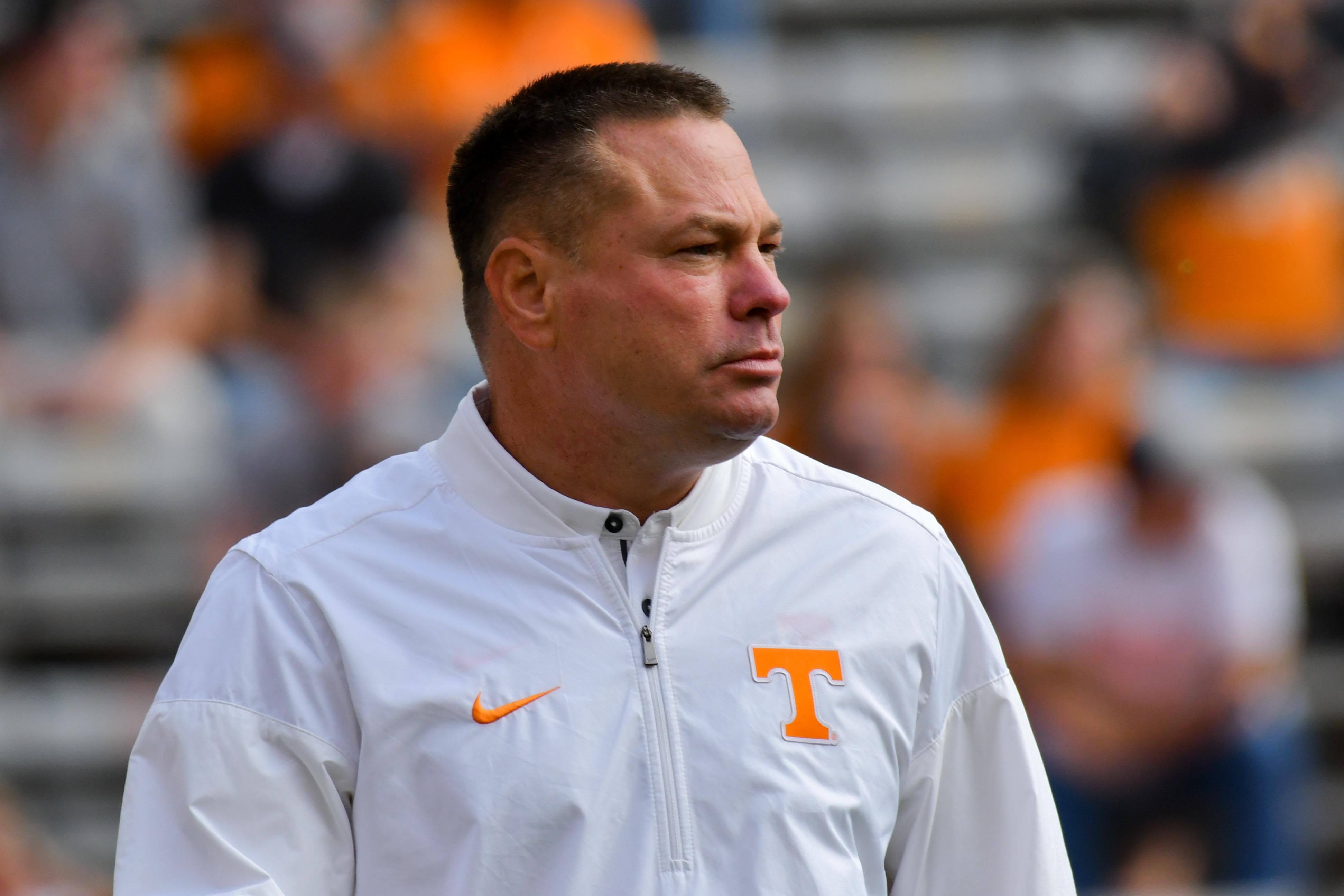
KNOXVILLE — When Butch Jones was hired as Tennessee’s head coach on Dec. 2, 2012, he talked a good game at his introductory press conference.
But almost nothing he talked about then came to fruition during his tenure on Rocky Top.
RELATED: Report: Tennessee has fired Butch Jones
Over the duration of five seasons that resulted in a 34-27 overall record (14-24 in the SEC), time showed that Jones could not deliver on areas that he emphasized.
Throughout his tenure, Jones dismissed the expectations that come with being the head coach of a prestigious program such as UT. He did not understand that excuses for not winning and competing for championships would not buy him more time as the caretaker of Tennessee football.
When introduced as head coach, Jones said that “all our fan base and myself have the same expectations” and that “we’re working to be national champions and we’re working to be SEC champions.”
Those sentiments sat well with everyone invested in the program following Derek Dooley’s departure, but those remarks now ring hollow along with others he made in December 2012.
Jones leaves the program in a downward spiral that was obvious and un-salvageable going into a showdown with Georgia five weeks ago. The result was a 41-0 loss to the Bulldogs, Tennessee’s first shutout loss since 1994. During game week, Jones lashed out at the media for asking about wide receiver Jauan Jennings not being on the sidelines after suffering an injury during the opening game of the season, saying “you guys look for everything” and that “I think you’re running a reality TV show that runs off of drama.” He then called local media “fake news” when asked about an injury suffered by Shy Tuttle.
Jones could not handle criticism or questioning surrounding him or his program. He made it a point to paint everything in a positive light when the reality was that it was not — and supporters of the program were smart enough to realize it.
He never took ownership nor declared disappointment after having the SEC East championship in his hands in 2016 and giving it away with losses to South Carolina and Vanderbilt. Jones rather relayed sentiments of his team winning the ultimate championship, the championship of life, a deterioration from his outspoken goals for the program at that introductory press conference.
When he took the job, he claimed that “if you want to be best” that “you want to compete in the best conference in the country.”
Jones was given that opportunity, taking over when the SEC East was historically down. The public disappointment of not achieving the first goal that surrounds the program of winning the division and playing for a chance at the SEC championship was the tipping point. No one wanted to hear Jones take about his team winning the biggest prize, “the champions of life.”
Jones cited that “players make good coaches” when he was hired. He seemed to prove that that is not always true, though, as UT didn’t find ways to utilize players to their capabilities or fit them to an offensive system that would accommodate their talent.
It was his offensive system that Jones claimed was “infallible,” saying he would allow his coordinators to coach and that he would be more of a CEO.
“I have an offensive background so I’ll sit more in the offensive meetings, but I’m a CEO,” Jones said when he was hired. “I’m going to make sure we’re all on the same page — offensive, defense and special teams — but also I’m hiring a staff to do their jobs.
“I’m not a micro-manager. I want to know everything. You’ll see me at practice and it will be high-energy. I’m going to be involved in all three phases, but I’m not a micro-manager. I’m going to assemble the best staff in America and I’m going to let them coach.”
But the offense never adjusted to its players’ strengths, only staying in Jones’ offensive system. His three offensive coordinators — Mike Bajakian, Mike DeBord and Larry Scott — were never given an opportunity to place their own stamp on the offense. The result was attrition from the roster with 32 players leaving the program, raising big red flags about whether Jones really was fully on the same page with his players.
In that first press conference, Jones said: “I believe in total honesty with your players. If you’re honest with them, then they’ll go to bat for you.”
The goal was “to give everyone the kind of football program that you can be extremely, extremely proud of.”
But after suffering two losses each to Vanderbilt, South Carolina and Missouri, on top of losing fourth-quarter leads to Florida twice and to Oklahoma, and most recently a defeat to Kentucky, results on the field did not allow for the Tennessee faithful to feel proud.
The few that did feel proud and continued to show full support of Jones in 2017 came unglued after this year’s aforementioned home loss to Georgia. The first shutout loss in 23 years tends to turn fans sour.
Jones is out of answers — either on the field or behind a podium.
The pressure and scrutiny of the job have left him more and more grasping for cliches and rah-rah statements that may be sincere but just sound tired.
In 2012, UT fans could embrace Jones’ message: “To our great and passionate fan base, and everyone here that loves this program, we’ll be working to be champions each and every day. … We will be a champion in everything that we do.”
In 2017, those are just words, unfulfilled promises.
Fan have seen enough terrible play on the field and heard enough of Jones sugar-coating the results. That is why he is no longer the Volunteers’ coach.
Dan Harralson covers Tennessee football for SaturdayDownSouth.com. Follow Dan on Twitter @danharralson.







